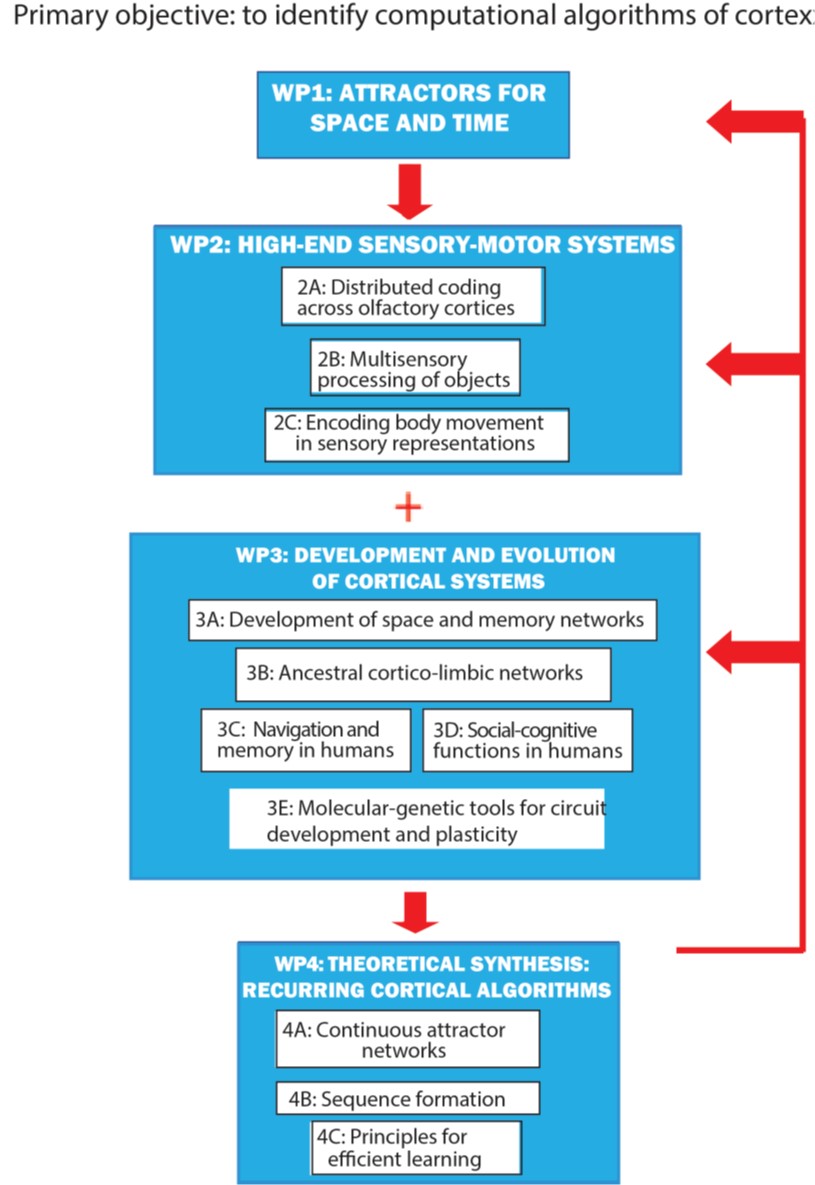WP2B: Multisensory processing of objects - The Kavli Institute for Systems Neuroscience
WP2B: Multisensory processing of objects
About
Motivation
The cortex processes information from different senses to create a multisensory representation of objects. We will identify the cortical algorithms underlying multisensory representation of objects in the perirhinal cortex (PER), a high-order cortical area fundamental for object recognition.
Aims
We will investigate the mechanisms and circuits underlying object recognition
- 2.3 Determine how the population dynamics of PER contribute to object identity coding and assess whether object representations are in the form of attractors (P1)
- 2.4 Determine how feedback from PER affects sensory processing in primary sensory cortices (P4)
Implementation
Simultaneous recordings will be performed in PER and primary sensory areas of headrestrained mice exploring visuo-tactile objects.
Using data from PER we will test:
- which features of objects are used to encode object identity
- whether attractor dynamics segregate populations representing different objects (P1, WP2AC WP4C)
We will then test the hypothesis that inputs from PER prime activity in primary somatosensory cortex in preparation for incoming sensory stimuli. Mice will explore known objects before being allowed to touch them. Responses in barrel cortex will be recorded before and after touch, and on trials in which visual and tactile properties are mismatched. We will investigate the underlying dynamics upon

